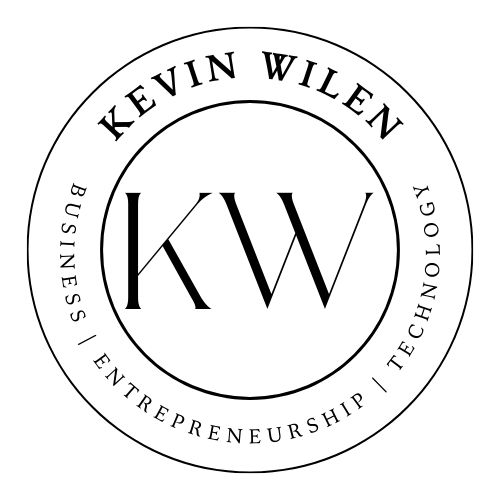Technology has become an integral part of our daily lives, influencing how we communicate, work, and even think. As we move further into the 21st century, several key trends are emerging that promise to reshape our world in profound ways. In this blog, we will explore some of the most exciting and transformative technological trends that are set to define the future.
1. Artificial Intelligence and Machine Learning
Artificial Intelligence (AI) and machine learning are at the forefront of technological advancements. These technologies are no longer confined to sci-fi movies; they are being integrated into various industries, from healthcare to finance. AI algorithms can analyze vast amounts of data, enabling businesses to make informed decisions faster and more efficiently. For example, in healthcare, AI is being used to predict patient outcomes and assist in diagnosis, revolutionizing how medical professionals deliver care.
As AI continues to evolve, we can expect even more innovative applications. From personalized learning experiences in education to smarter virtual assistants in our homes, AI’s potential is limitless. However, it’s essential to address ethical considerations, such as privacy and bias, to ensure that AI is used responsibly.
2. The Rise of 5G Technology
5G technology is set to revolutionize how we connect and interact with the world around us. With its lightning-fast data speeds and low latency, 5G opens the door to new possibilities in communication, entertainment, and commerce. Imagine downloading entire movies in seconds or experiencing virtual reality with minimal lag—these are just a few of the advancements 5G will facilitate.
Moreover, 5G will enable the Internet of Things (IoT) to flourish. With billions of devices connected to the internet, from smart home appliances to industrial machinery, 5G will enhance connectivity and data exchange. This interconnectedness will lead to smarter cities, improved traffic management, and enhanced healthcare monitoring, making our lives more efficient and convenient.
3. The Expansion of the Internet of Things (IoT)
The Internet of Things refers to the growing network of connected devices that communicate with each other and exchange data. From wearable fitness trackers to smart thermostats, IoT devices are becoming increasingly prevalent in our everyday lives. This technology has the potential to enhance efficiency in various sectors, including manufacturing, agriculture, and logistics.
In agriculture, for instance, IoT sensors can monitor soil moisture levels, allowing farmers to optimize irrigation and reduce water waste. In manufacturing, connected machinery can predict maintenance needs, minimizing downtime and increasing productivity. As IoT technology advances, we can expect even more innovative applications that will transform how we live and work.
4. Blockchain Beyond Cryptocurrency
Blockchain technology is often associated with cryptocurrencies like Bitcoin, but its potential extends far beyond digital currencies. Blockchain offers a secure and transparent way to record transactions and manage data, making it an attractive solution for various industries.
In supply chain management, for example, blockchain can enhance traceability, ensuring that products are sourced ethically and delivered efficiently. In healthcare, it can secure patient records and streamline data sharing among providers while maintaining privacy. As more businesses recognize the benefits of blockchain, we can expect its adoption to grow, leading to more secure and efficient operations.
5. The Evolution of Cybersecurity
As technology advances, so do the threats associated with it. Cybersecurity is becoming increasingly critical as businesses and individuals face growing risks of cyberattacks. From ransomware to data breaches, the need for robust cybersecurity measures has never been more pressing.
Organizations are investing in advanced security solutions, including AI-driven threat detection and response systems. Additionally, as remote work becomes more commonplace, the importance of securing remote access to company networks is paramount. Training employees on cybersecurity best practices is also essential in creating a culture of security awareness. As technology continues to evolve, so too must our approaches to cybersecurity.
6. Sustainability and Green Technology
With climate change becoming an urgent global issue, technology is playing a crucial role in promoting sustainability. Innovations in renewable energy, such as solar and wind, are making it easier to transition away from fossil fuels. Energy-efficient technologies, like smart grids and energy storage solutions, are also helping to reduce our carbon footprint.
Furthermore, green technology is being integrated into various industries, from agriculture to transportation. Electric vehicles are becoming more mainstream, and companies are exploring sustainable practices to reduce waste and enhance efficiency. As we move forward, the intersection of technology and sustainability will be essential in addressing environmental challenges.
Conclusion
The future of technology is bright, filled with possibilities that will reshape our world in remarkable ways. From AI and 5G to IoT and blockchain, these trends are not only transforming industries but also enhancing our daily lives. As we embrace these advancements, it’s crucial to consider the ethical implications and prioritize sustainability. The path ahead may be complex, but with thoughtful innovation, we can create a future that benefits everyone. The next technological revolution is on the horizon—let’s get ready for it!

